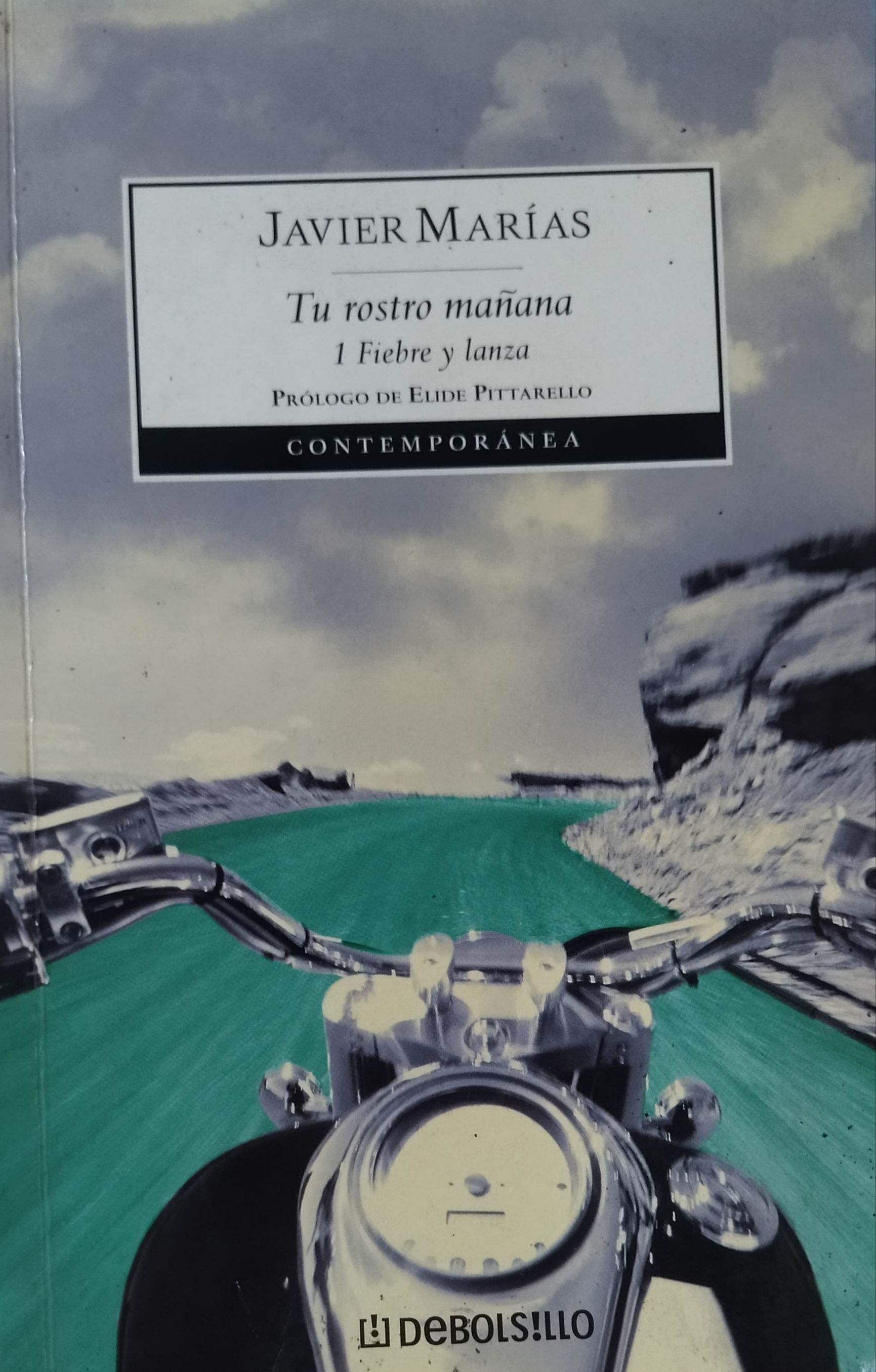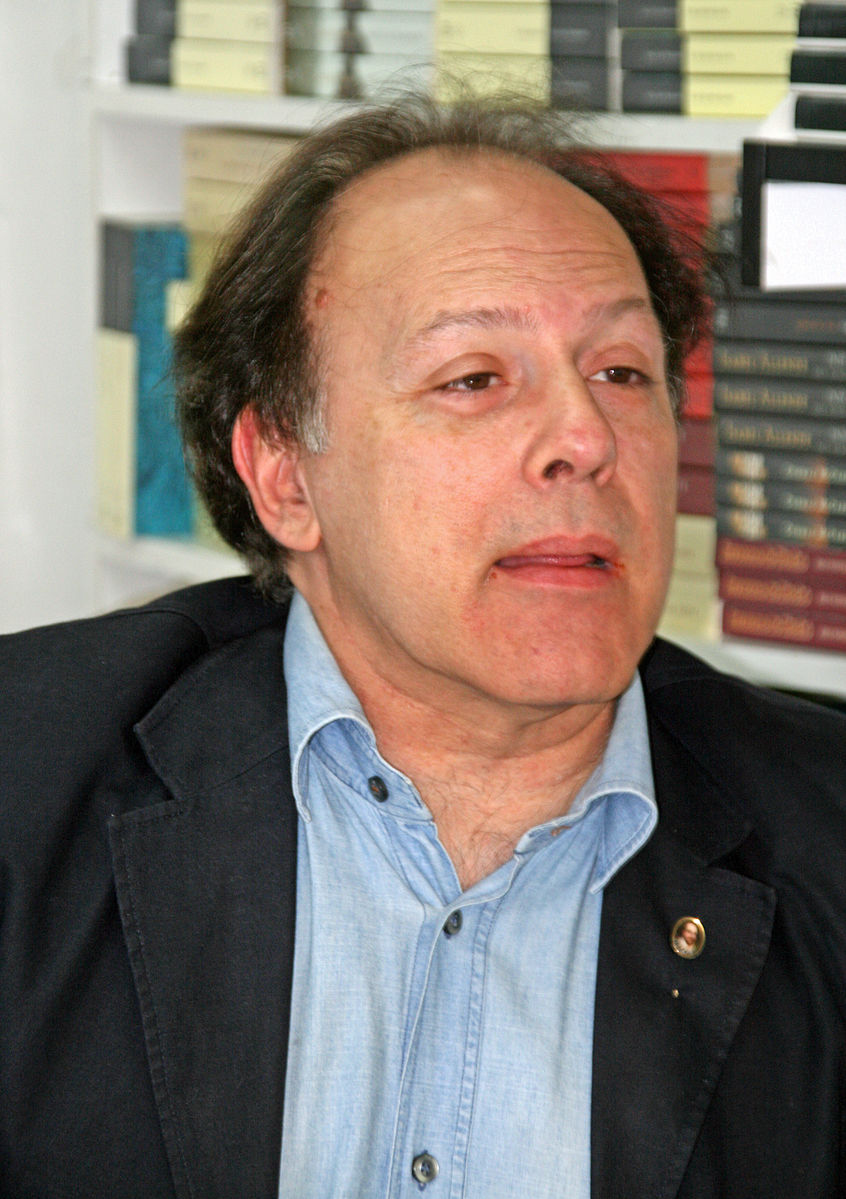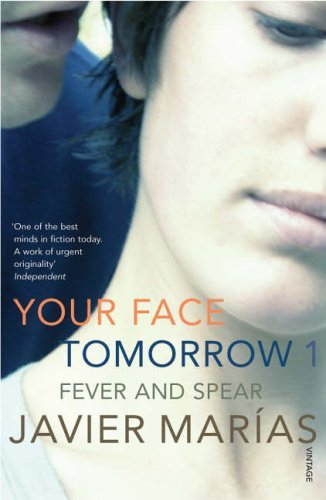Saludos hivebookers. En esta ocasión les vengo hablar de una novela que me gustó mucho. Pero antes, les hablaré de su autor.
Javier Marías (1955-2022) ha sido uno de los escritores más prolíficos de España. Escribió obras como Corazón tan blanco, Mañana en la batalla piensa en mi, Miramientos, y la saga —sí, porque son tres libros— que nos ocupa.
Tu rostro mañana es un libro con acciones filosóficas, es decir, la trama se centra en escuchar a los personajes conversar sobre la historia particular de cada quien, pero también escuchar —a escondidas— la vida de los otros.
Los personajes cuentan y dicen, pero también esconden.
No debería uno contar nunca nada,ni dar datos ni aportar historias ni hacer que la gente recuerde a seres que jamás han existido ni pisado la tierra o cruzado el mundo, o que sí pasaron pero estaban ya medio a salvo en el tuerto e inseguro olvido.
Ese extrañamiento de la negación será consecuente en el libro, donde el personaje (Jacobo Deza) nos va narrando los equívocos de su trabajo y la relación que existe entre la Historia y su procedencia familiar.
Jacobo, también conocido como Giacomo, Jacques o Jack, es profesor en la universidad de Oxford, y se relaciona con un hombre ya mayor, Sir Peter Wheeler, quien es su mentor y amigo. Así, pasa una noche en su casa donde profundiza en el tema de la guerra civil española y sobre lo peligroso que podía ser decir cualquier cosa.
Esta novela pareciera ser una de espías. digo pareciera porque el personaje se involucra en hechos de este tipo. Es contratado para escuchar, informar e interpretar lo que escucha e incluso lo que ve.
Las acciones se detienen en el tiempo mientras el narrador hace varias introspecciones sobre su trabajo y los riesgos que conlleva. En varias oportunidades se repite el axioma «no debería contar uno nunca nada» para luego romper ese pacto y sumergirnos en ese mundo opaco y sombrío del cual el mismo Deza conoce muy poco. Les dejaré a continuación algunas citas que encontré interesantes.
La verdad es que todo tiende a ser creído, en primera instancia. Es muy raro, pero así sucede.
Hablan los libros en mitad de la noche como habla el río, con sosiego o desgana, o la desgana la pone uno con su propia fatiga y su propio sonambulismo y sus sueños, aunque esté o se crea muy despierto.
Cada vida está llena de episodios literalmente invisibles, uno ignora lo que pasó porque simplemente no lo vio, no hubo posibilidad de verlo, buena parte de lo que nos afecta y determina está tapado, cómo decir, no se ofreció a la visión, se sustrajo, no hubo ángulo.
Estos son solo pequeños fragmentos de la novela. Espero que se animen a leerla, pero eso sí, con calma. Y si ya la leyeron pueden dejar en los comentarios sus impresiones sobre esta obra.
¡Buenas lectura a todos!

Javier Marías. Tu rostro mañana 1. Fiebre y lanza. De bolsillo. Barcelona, 2002.
English version
Greetings hivebookers. This time I am going to tell you about a novel that I really liked. But first, I will tell you about its author.
Javier Marías (1955-2022) has been one of the most prolific writers in Spain. He wrote works such as Corazón tan blanco, Mañana en la batalla piensa en mi, Miramientos, and the saga -yes, because there are three books- that concerns us.
Your face tomorrow is a book with philosophical actions, that is to say, the plot is centered in listening to the characters talking about each one's particular story, but also eavesdropping on each other's lives.
The characters tell and tell, but they also hide.
One should never tell anything, nor give data or provide stories or make people remember beings that have never existed or walked the earth or crossed the world, or that did happen but were already half-safe in the one-eyed and insecure oblivion.
This estrangement of denial will be consistent in the book, where the character (Jacobo Deza) narrates the misunderstandings of his work and the relationship between history and his family background.
Jacobo, also known as Giacomo, Jacques or Jack, is a professor at Oxford University, and is related to an elderly man, Sir Peter Wheeler, who is his mentor and friend. So, he spends an evening at his house where he delves into the subject of the Spanish Civil War and how dangerous it could be to say anything.
This novel seems to be a spy novel. I say seems because the character gets involved in this type of events. He is hired to listen, report and interpret what he hears and even what he sees.
The actions stop in time as the narrator makes several introspections about his job and the risks involved. On several occasions the axiom "one should never tell anything" is repeated, only to break that pact and immerse us in that opaque and somber world of which Deza himself knows very little. Here are some quotes that I found interesting.
The truth is that everything tends to be believed, in the first instance. It is very strange, but it happens.
The books speak in the middle of the night as the river speaks, with calmness or reluctance, or the reluctance is put by one with his own fatigue and his own sleepwalking and his dreams, even if he is or believes himself to be wide awake.
Every life is full of literally invisible episodes, one ignores what happened because one simply did not see it, there was no possibility of seeing it, a good part of what affects and determines us is covered up, how to say, it was not offered to the vision, it was subtracted, there was no angle.
These are only small fragments of the novel. I hope you are encouraged to read it, but of course, calmly. And if you have already read it, you can leave in the comments your impressions about this work.
Good reading to all!
*Javier Marías. Your face tomorrow 1. Fever and spear. De bolsillo. Barcelona, 2002.
Translated with DeepL.com (free version)


